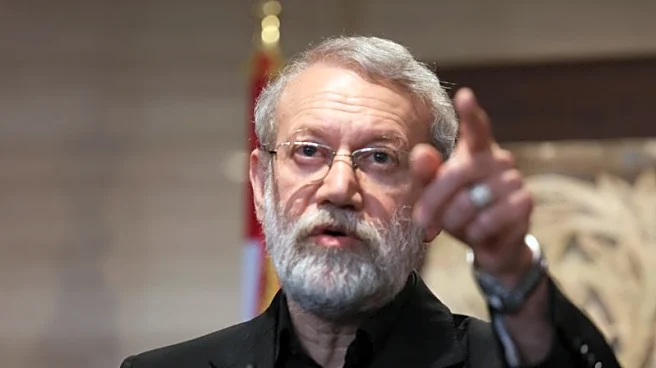Rapid Read • 8 min read
Germany has announced a suspension of military exports to Israel that could be used in Gaza, following a decision by Israeli Prime Minister Benjamin Netanyahu's Cabinet to take over Gaza City. This move marks a significant shift in Germany's stance, as it has been one of Israel's strongest international supporters. The decision comes amid widespread international criticism of Israel's military actions in Gaza, which have been condemned by the United Nations and various human rights organizations. Chancellor Friedrich Merz emphasized that while Israel has the right to defend itself against Hamas, the humanitarian situation in Gaza necessitates a pause in military support. The German government has called for the release of Israeli hostages and a ceasefire, urging Israel to allow comprehensive aid access to Gaza.
AD
Germany's decision to halt military exports to Israel is significant due to its historical support for Israel, rooted in post-World War II policies aimed at ensuring Israel's security. This move could further isolate Israel internationally and may influence other European nations to reconsider their military and diplomatic relations with Israel. The suspension of arms exports could impact Israel's military operations, although the United States remains a key supplier. The decision reflects growing European discontent with Israel's actions in Gaza, which have led to humanitarian crises and widespread civilian suffering. This development could pressure Israel to alter its military strategy and engage in negotiations for a ceasefire.
The suspension of military exports is likely to prompt diplomatic discussions between Germany and Israel, as well as within the European Union, regarding future military and economic relations with Israel. Israel may seek to address international concerns to restore military support from Germany and other European nations. The situation in Gaza remains volatile, and further international pressure could lead to renewed efforts for a ceasefire and negotiations involving key regional players like Egypt and Qatar.
Germany's decision highlights the ethical and humanitarian considerations in international arms trade, particularly in conflict zones. It underscores the tension between national security interests and humanitarian responsibilities. The move may also influence public opinion in Germany and other European countries, potentially leading to increased advocacy for Palestinian rights and humanitarian aid.
AD
More Stories You Might Enjoy












